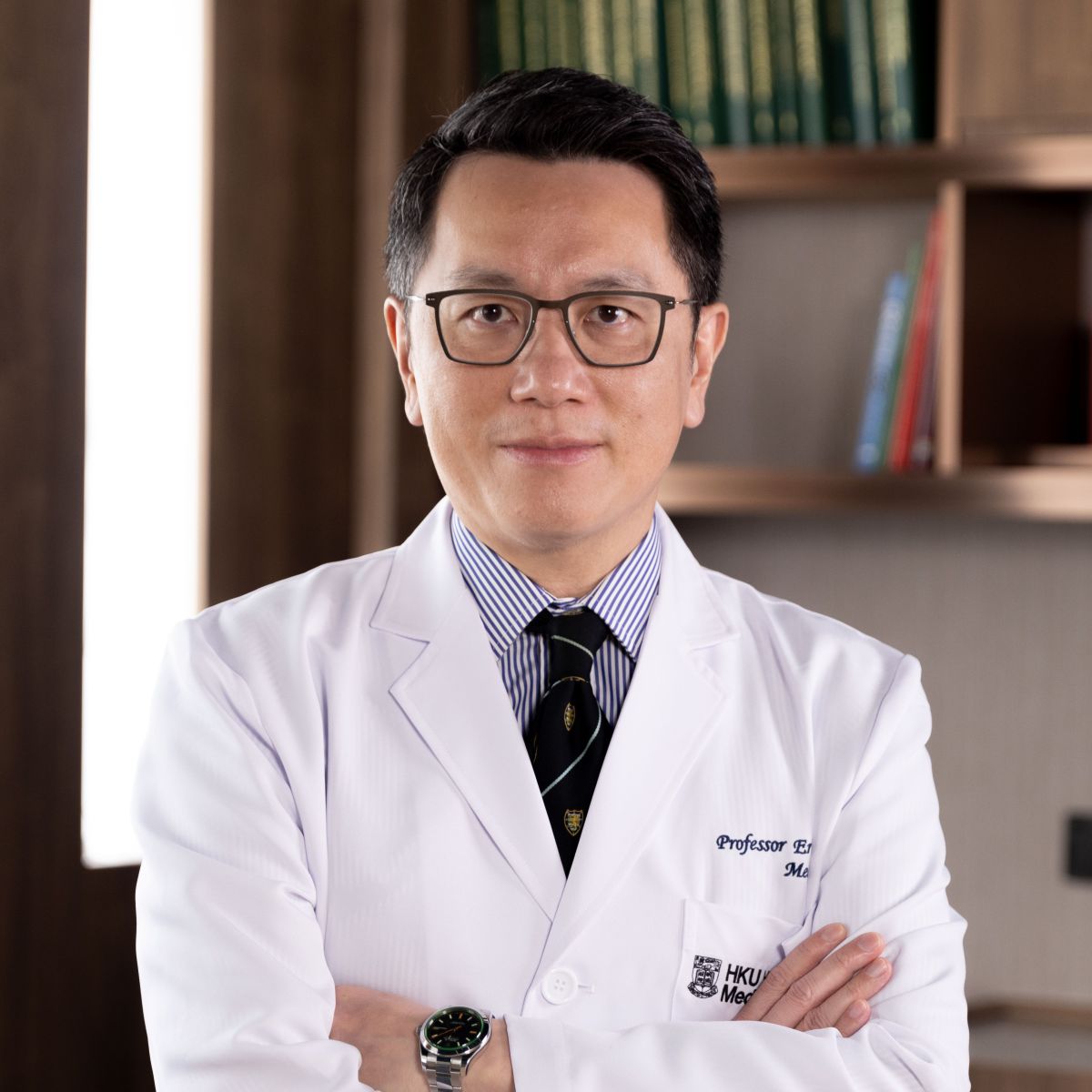
Professor Eric Tse
Haematology and Oncology Expert
Protecting Participants and Advancing Medicine through Ethics and Science
With the continuous development of medical science, the diagnosis and treatment of haematological cancers have also been improving. Professor Eric Tse is SH Ho Professor of Haematology and Oncology at HKU. Over the years, he has been actively researching on treatment for leukemia and lymphoma. He also serves as the Chairman of The University of Hong Kong/Hospital Authority Hong Kong West Cluster Institutional Review Board (HKU/HA HKW IRB), and, together with a group of committee members, ensures the safety and rights of research participants from ethical and scientific perspectives.
Advancement in Medicine through Research
Professor Tse has had a strong interest in science since his childhood. He studied medicine as he believed that the work of a doctor could help patients and would be meaningful, and thereafter he has been devoted to research in haematology and oncology. “There are various types of hematologic cancers, such as leukaemia, myeloproliferative neoplasms and lymphoma. They are not uncommon in Hong Kong, and doctors have to face more than a thousand of new cases every year. As the symptoms are not obvious in the early stages of these diseases, most patients only seek medical consultation when their lymph nodes start swelling. We must conduct detailed examinations and investigations for each patient to determine the specific disease type before prescribing appropriate treatments,” Professor Tse pointed out.
The traditional treatment for hematologic tumors is chemotherapy supplemented by radiation therapy. Patients with chronic myeloid leukemia (CML) would require allogeneic bone marrow transplantation in the past. “Thanks to the rapid advancement in medicine through scientific research and innovation, some hematologic tumors such as CML can now be treated with oral targeted therapies, and allogeneic bone marrow transplantation is now rarely needed,” Professor Tse explained. In addition to oral targeted therapies that control cancer cell growth, many novel treatments have emerged in recent years, including immunotherapies that activate lymphocytes to attack tumors, and cell therapies that attack tumor cells using genetically modified lymphocytes from a patient’s own body. In 2020, Professor Tse and his research team introduced chimeric antigen receptor T-cell (CAR-T) therapy into Queen Mary Hospital and completed clinical treatment for an acute leukemia patient in Hong Kong for the first time outside a clinical trial setting, successfully controlled his condition. For certain types of leukemia and myeloma patients, this therapy is more effective than traditional treatments.
Benefit of Research Participants is always the Priority
To better protect the rights, safety, and well-being of clinical research participants, HKU and the Hospital Authority Hong Kong West Cluster merged their respective ethics committees in 2002 and established a combined research ethics committee called “HKU/HA HKW IRB”, further strengthened ethical and scientific review and ongoing supervision of clinical studies. “Any clinical study that requires human participation must have an approval from the ethics committee before it can proceed. The primary responsibility of the ethics committee is to ensure the safety of participants, protect their rights, privacy, and well-being, and also to evaluate research projects and provide recommendations from both scientific and practical perspectives, allowing meaningful research projects to proceed smoothly and generate valuable research outputs for the benefit of humanity,” Professor Tse said, being the current chairman of the committee. The ethics committee is composed of scientific members with medical science backgrounds and non-scientific members from non-medical fields, who together consider the value, risks and feasibility of research projects from the perspectives of science, patients and the public. Research projects could therefore be conducted based on appropriate designs and arrangements that are duly thought through taking into consideration the valuable opinions from the members.
Because research participants are being safeguarded by the research ethics committee, Professor Tse encourages more people to actively support clinical research. “Everyone has the opportunity to participate in clinical research and contribute to medical advancement. Especially for patients suffering from diseases without promising cure, clinical trials could be an alternative possibility.” Professor Tse expresses special gratitude to all the patients and volunteers who support clinical research, and also those medical doctors and researchers who have long been dedicated to medical research. Only with the joint efforts of all the stakeholders, more advanced drugs, therapies and medical technologies will emerge and more people will be benefited.
